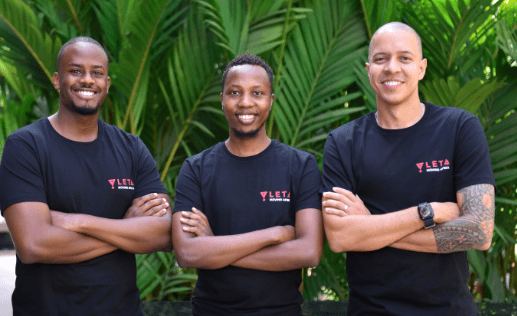Africa’s clogged roads, delayed deliveries, and sky-high transport costs have long strangled businesses across the continent. But Nairobi-based startup, Leta, believes it has the software and the ambition to fix it.
Now, fresh off a $5 million funding boost, the company is steering its AI-powered logistics platform into Ghana, signaling both confidence in African-grown tech and a bold new phase in the battle to modernize Africa’s supply chains.
Founded in 2021 by entrepreneur Nick Joshi, Leta claims it started as a logistics operating system designed to help businesses manage fleets more efficiently.
What makes Leta different?
Instead of relying on costly hardware or new vehicles, Leta’s software integrates with ERP and POS systems to provide real-time fleet tracking, route optimization, and delivery analytics.
Kenya, Uganda, Nigeria…
In just four years, the company has expanded into seven countries—Kenya, Uganda, Nigeria, Zimbabwe, Zambia, Mauritius, and now Ghana.
Its client includes major brands like KFC, East African Breweries, Wells Fargo Couriers, and Simbisa Brands.
The platform has processed over 4.5 million deliveries, moved 150,000 tonnes of goods, and now oversees a staggering 7,400 vehicles across the continent.
Investors of Leta
Backed by investors like Speedinvest, Google’s Africa Investment Fund, and Equator VC, Leta has achieved a fivefold revenue increase since its pre-seed days in 2022.
Its recent $5 million seed round reflects strong faith in African-grown SaaS solutions aimed at the continent’s unique challenges.
Market opportunity
Ghana, with its booming retail, FMCG, and restaurant sectors, offers fertile ground for Leta’s expansion.
Logistics costs can consume up to 70% of the cost of goods sold in African markets, squeezing already thin profit margins and making local products less competitive.
Leta’s approach according to experts, promises significant cost savings without requiring businesses to invest in new fleets—an attractive proposition in a region where cash flow is often tight.
What you should know
The company’s push into embedded finance—offering fuel cards, asset financing, and potentially insurance—could further transform how small and mid-sized fleet owners operate, though some observers caution about the risks of locking users into a single ecosystem.
“AI-driven fleet optimization can lower operational costs by as much as 20-30%,” Joshi said in a previous statement, pointing to the scalability of software solutions even in infrastructure-poor regions.
Expert concerns
Still, some challenges loom. Critics wonder if software alone can untangle Africa’s deeply physical logistics problems—bad roads, customs delays, and patchy internet connectivity remain daily obstacles.
And while Leta’s big-brand partnerships are impressive, can smaller African businesses afford advanced logistics tech, or will cost remain a barrier?
Moreover, the influx of foreign capital sparks debate about who truly shapes Africa’s logistics priorities. Are African entrepreneurs steering the agenda—or are Silicon Valley VCs dictating what problems deserve attention?
The bigger picture
Despite these questions, Leta’s success represents a broader trend of “invisible infrastructure” startups tackling Africa’s legacy challenges through digital tools rather than physical assets.
Its expansion into Ghana—and perhaps soon francophone West Africa—will be a critical test of whether software can indeed solve some of Africa’s oldest logistical nightmares.
For now, all eyes are on Ghana to see if Leta can keep its promise and keep the wheels of Africa’s economy turning.
Talking Points
The Invisible Divide: Big Brands vs. Small Players. KFC and Simbisa Brands can afford shiny AI dashboards but what about the thousands of small traders hauling tomatoes from the farm to the market?
Leta’s tech sounds incredible, but it’s still a luxury for big business. If Africa’s logistics revolution only serves corporate giants, we’ll deepen inequality rather than bridge it.
Embedded Finance Empowerment or Digital Trap? Leta wants to offer fuel cards and asset financing which could be game-changing for small fleet owners.
But there’s a flip side: if truckers become dependent on Leta’s ecosystem for credit and fuel, are they building freedom or new digital shackles? “Embedded finance” sounds noble until it locks users into one platform for life.





